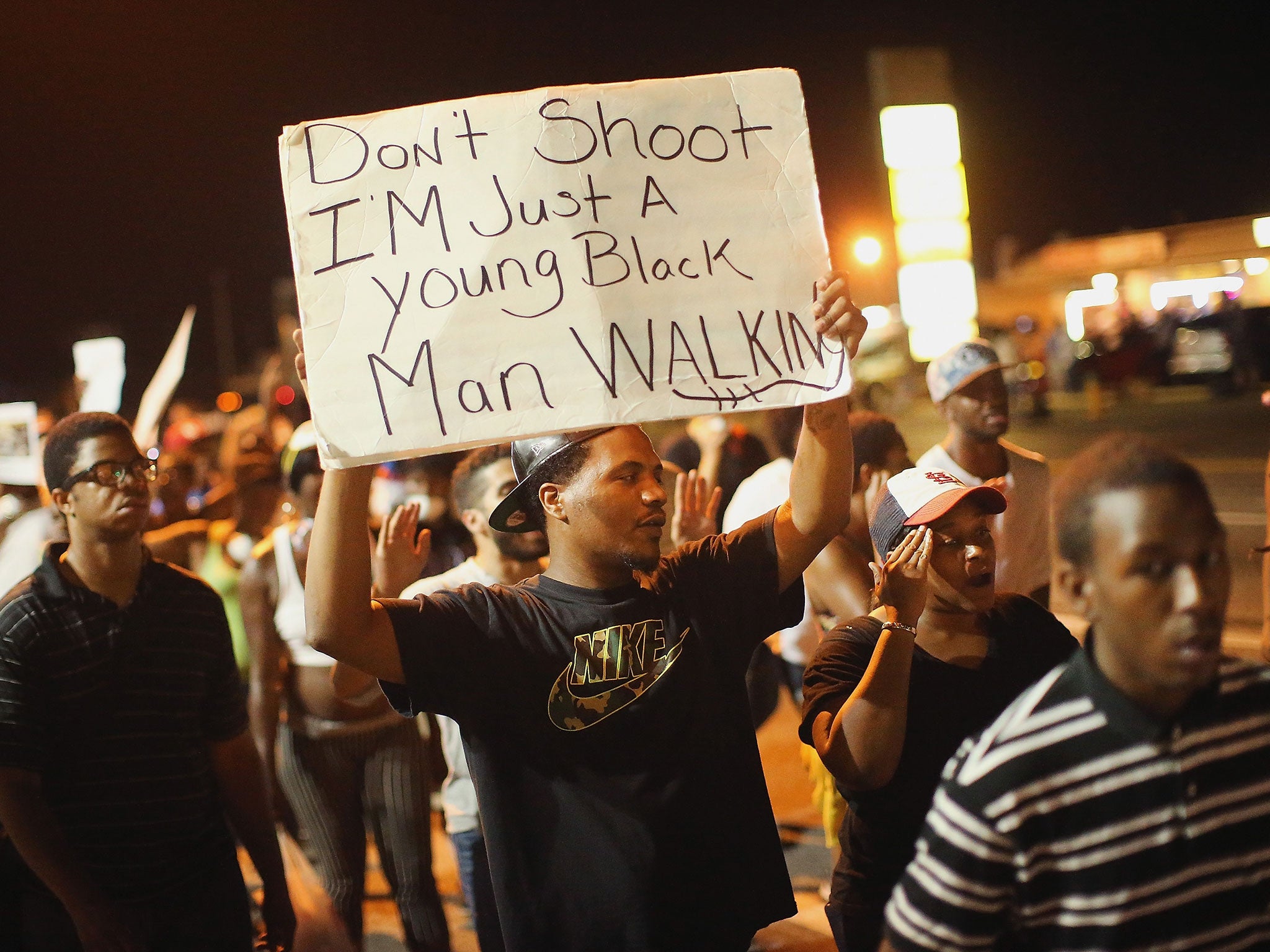Michael Brown shooting: Rap artists broadcast word on the street about the Ferguson teenager's death
Some of the music is already playing on the radio and much of it is being shared through social media

Your support helps us to tell the story
From reproductive rights to climate change to Big Tech, The Independent is on the ground when the story is developing. Whether it's investigating the financials of Elon Musk's pro-Trump PAC or producing our latest documentary, 'The A Word', which shines a light on the American women fighting for reproductive rights, we know how important it is to parse out the facts from the messaging.
At such a critical moment in US history, we need reporters on the ground. Your donation allows us to keep sending journalists to speak to both sides of the story.
The Independent is trusted by Americans across the entire political spectrum. And unlike many other quality news outlets, we choose not to lock Americans out of our reporting and analysis with paywalls. We believe quality journalism should be available to everyone, paid for by those who can afford it.
Your support makes all the difference.If rap is the black community’s CNN, as hip-hop pioneer Chuck D famously said, then the artists here have been working overtime to broadcast news from the small suburb of Ferguson, the nation’s latest crisis point in the ongoing struggles around race and justice.
Several tracks referring to the death of Michael Brown have surfaced, almost one a day, covering a range of emotions: anger and outrage, sadness and grief, and outright rebellion.
For the little-known but vibrant community of independent artists in St Louis, the music is an expression of simmering frustrations that existed long before Mr Brown was killed, they say. MC Keem put together a music video he calls “Front Line” and raps against scenes from the nightly street protests. “Got the world watching. They can feel the tension of an angered generation,” he says.
Some of the music is already playing on the radio and much of it is being shared through social media. Keem, whose given name is Hakeem Love, wrote the lyrics to his song last week as part of an outpouring of emotion for his home town. “Artists capture moments,” the 30-year-old said.
Aside from the music, hip-hop producers, rap artists and DJs are organising marches, buying food for protesters and planning political action, including drafting and raising money for a candidate to challenge the county prosecutor in an upcoming election. Their actions are underscored by the soundtrack emerging from these days of unrest, music that documents the demonstrators’ version of events.
The music includes a few songs from nationally known artists who have come to Ferguson to participate in the protests. The music of St Louis made its mark more than a decade ago when Nelly and Chingy, two home-town rap artists, became stars.
The artists encourage their fans, many of whom are listening to the tracks in Ferguson’s streets, to protest peacefully even as they sympathise with the community’s lingering anger. “I call it the hip-hop intelligentsia,” said Chris King, editor of the St Louis American newspaper.
The raw aftermath of Mr Brown’s death was a moment for some artists to brandish their names, using the attention as an opportunity to promote themselves, but others have flexed new muscles as community organisers. Keem, whose biggest hit was the club record “Thick Wit It” – a pure party single about full-figured women – has found a more conscious streak to his lyrics.
He and local music producer Ronnie Notch, 30, were picking up cases of water this week to take to the site near Family Dollar on West Florissant Avenue, the staging area for the nightly protests.
Rapper Tef Poe, one of the area’s most popular independent artists, has been marching with demonstrators every night. For him, the situation is personal. “When it happened, my younger brother called me,” he said. “He was on the phone crying. He said, ‘They killed Mike.’ They had mutual friends.”
The activism is refreshing, said Tricia Rose, a professor of Africana studies at Brown University and author of The Hip Hop Wars, who has been a scholar and critic of hip-hop. She called the crisis in Ferguson a potential turning point “for local artists to see themselves as having a mandate for developing a creative space where hip-hop is not a product, hip-hop is a nourishing community jewel”.
© Washington Post
Join our commenting forum
Join thought-provoking conversations, follow other Independent readers and see their replies
Comments